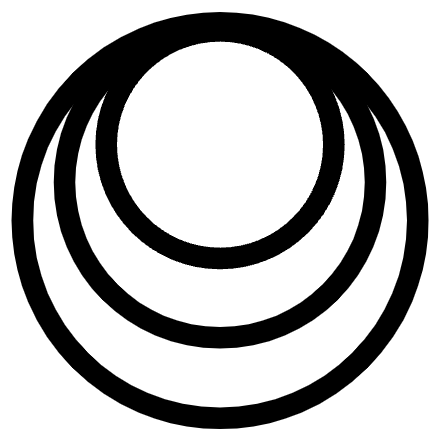I rejected the Christian characterization of God early in life because of its close association with organized religion, which I viewed as a negative force in world history. Aside from that, I didn’t have any direct experience of the concept, and descriptions were vague, arbitrary, contradictory, and difficult to apply to my modern life. I was interested in explaining life, but the Biblical concept of a God steeped in archaic prose turned me away.
In my first year of university I learned about Theosophy, which started my move toward new age spirituality. New age spiritualism used words like “universe”, “energy”, and “enlightenment” in place of “God” and “soul”, avoiding triggering my skepticism towards organized religion. These concepts resonated more with my technical view of the world. I was able to imagine something greater without committing to all of the baggage that came with old world religions.
That lasted for a few years while I was in college and intermittently wandering the US. I met and bonded with a lot of young and old people alike who shared a similar brand of eco-spiritualism. We all rejected organized religion, but still wanted answers to life’s fundamental questions. The general sentiment was that God was a fair and democratic force seeking balance and harmony; a fusion of eastern mystical and western scientific thought. We preferred to label ourselves “spiritual” instead of “religious”.
Though new age spirituality was more accessible than old world religion, it was also highly impersonal. Over time it was clear it was more of a commercial industry than a cohesive worldview, with competing spiritual products and services available for sale for different spiritual ailments. I could assemble my own brand of spirituality with rituals, beliefs, platitudes, supplements, and aspirations. I appreciated the creativity, but was skeptical of the spiritual marketplace, which teemed with charlatans and people I couldn’t take seriously.
New age spiritualism is a DIY spiritual kit, where you assemble spiritual concepts and rituals into an individualized worldview like building blocks. The result for me was a dissatisfying patchwork of ideas without any cohesive framework; no glue tied it all together except for an abstract belief that everything is energy.
And since new age spirituality is consumed as a product, I felt like I was consuming intellectual property. I could use the ideas, but if I wanted to share them, all the normal property rights apply. At least the Bible is open source. It was a perfect extension of dabaism – promising an answer to everything, but without the practical steps to achieve anything.
Further, new age authors seemed to take extra precaution to avoid offending anyone, so everything was generalized to the point of meaninglessness. After awhile they felt like books full of platitudes, not the concrete answers to the tough questions. The only books which provided a confident answers to the nature of life invent characters like “guardians”, dimensions, and incredibly far-fetched analogies to justify their conclusions. As a rationalist, I always look for the simplest answers to a question, and these were not simple to me.
I wanted more than rituals — I wanted to understand life, and then live that understanding. In order to do that, I needed to be able to directly interface with the higher power. That meant I needed to know, first and foremost, where I was. In concrete terms. I also needed to know who was behind it all and how to interface with him.
That answer arrived when I was 22 and I had an experience I can only describe as an epiphany in my apartment in downtown Portland. Without going into much detail, after that experience I again dropped out of university, sold everything, and bought a one-way ticket to Thailand to live an ascetic life. I dropped everything in a matter of months. It was the second time I had done this, but this time I was chasing purpose; a chance to live with God. After that event, I wasn’t uncomfortable with the word anymore; I embraced it. I devoured the texts of the world’s religions, finding at the core of all of them, an experience just like the one I had in my apartment.
Since then I have not had the same experience. I believe that was the great reveal, and it was my mission to describe that and bring more of it into my life. I knew that I didn’t just want to integrate platitudes into my life; I wanted a complete change. I wanted to give myself fully to this force.
Nearly 20 years after that experience, I can say that the concept of “God” is more relevant than any other. Because God represents our purpose. God is not inaccessible; he’s very very simple. God is simply that observer at the center of my existence; the ever-watching eye that lies under all of the layers of my self. I think of my experience as a sort of funnel, originating at the very center of my being and extending outward through my body and to the world I experience and imagine. God is that very center — the “observer”, and my self, “Marc”, is the next layer on top, followed by the non-self world.
I believe the simplest answers are the best. I also know that I can directly experience God. We all can. That experience in Portland when I was just 22 was a wake up call, and the physics of it I can also now explain. The layers of my Self, suspended as productions, were disabled; they ceased to matter for the duration of that experience, enabling direct experience of the pre-productive state.
…
